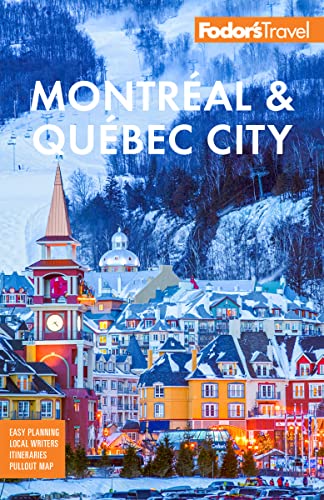Montréal and Québec City Today
Ask Quebecois what they think of their city, and they’ll rattle off tons of things to improve: potholes, bureaucratic corruption, construction strikes, parking meters—the list goes on. Then ask them if they would move anywhere else in the world, and the answer is always a confident no. Any indication that the cold weather is gone, and Quebecois will head to an outdoor terrace, or terrasse, pronounced terr-ASS by Anglo Quebecois.
There's Music in the Air
With the massive success of home-grown band Arcade Fire, international record labels are paying more and more attention to the city. The emerging Montréal music scene is comparable to Seattle's Indie music explosion of the 1990s. Bands such as Milk and Bone, Half Moon Run, Grimes, and Chromeo are making Montréal concert halls the place to be.
Political Progress
Politics in Québec are as entertaining as hockey.
Quebecois went to the polling stations in April 2014, and the result surprised not just locals but all Canadians; the incumbent separatist party, the Parti-Québécois, lost by a majority vote to the Liberal Party. With the Liberals currently in power, talk of provincial separation has ceased—at least until the next provincial election. The economy, particularly in Montréal, has been on an upswing and the "Pastagate" nonsense—in which the French-language police, responsible for the preservation of the language, wanted to ban the word "pasta" from an Italian restaurant menu—has ended.
On the municipal level, Montrealers were surprised with the unexpected win, in November 2017, of Valérie Plante, the first woman ever to be elected mayor of Montréal with a cheeky ad campaign touting her as "the best man for the job." Young (43), feisty, and affable, Plante campaigned on a promise to massively expand the subway system, make the city greener and more pedestrian and bike-friendly, and to invest in social housing. She also campaigned on a promise to ease traffic woes and put an end to calèches (horse-drawn carriages). Watch this space.
The Arts Make a Splash
Things are looking up, too, in Montréal's Downtown arts district, the Quartier des Spectacles, as it continues to expand and grow. It's also the only place in the world with year-round artistic projections on building facades and windows. Enjoy the views, but watch your step—water fountains shoot up beneath many of its concrete walkways.
As for Québec City, it's emerging as a premier stop for summer concerts and festivals. On the Plains of Abraham, outdoor performances accommodate more than 250,000 spectators, and people come from all over to watch under the stars. Past performers including Madonna, Céline Dion, Paul McCartney, Rush, and Lady Gaga have helped put Québec City on the entertainment map.
Sports Fans in High Places
Montréal’s soccer team, The Impact, began competing in Major League Soccer in 2012, which helped solidify its fan base.The addition of popular heavyweights such as Argentinian midfielder Ignacio Piatti, whose contract was extended in late 2017, means it is continuing to grow as a spectator sport and local attraction.
Not wanting to feel left out, Québec City's mayor, Regis Labeaume, decided that one of his priorities was to get an NHL team back in town. He built a C$400 million stadium, which opened in September 2015, and has been prospected as a potential venue for a new NHL team in the city.
Pedal Power
Montréal has come a long way since its 2009 introduction of Bixi, a bike-sharing scheme similar to those in New York City, London, Chicago, and many other cities. Using the system, you pay to take a bicycle from a rental station and then leave it at a station near your destination. Every year more bike paths are added to city streets (there are at least 500 km [300 miles] of them now), much to the chagrin of some drivers. In 2014, Bixi declared bankruptcy, but City Hall stepped in to defend the viability of the controversial scheme. In 2017, Bixi solidified its network (there are now 6,250 bikes and 540 stations) and the scheme enjoyed a record-breaking year, with more than 258,000 people taking a grand total of 4.8 million trips. Local fans—and visitors—are keeping their fingers crossed that Bixi is here to stay.




